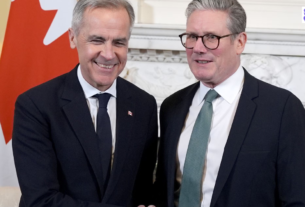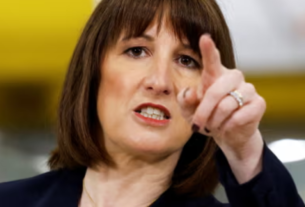In recent weeks, Prime Minister Keir Starmer has turned up the heat on Nigel Farage, famously declaring that Farage and his Reform UK party represent the country’s real opposition, a bold shift that reflects deeper political currents reshaping Westminster.
Starmer and his team have grown alarmed by Reform’s rising trajectory. Polling data now shows Reform ahead of both Labour and the Conservatives in some areas, with as much as 27% support compared to Labour’s 24% and the Conservatives at 17% in recent local elections. That surge has prompted a rethink: instead of ignoring Farage, the Labour leader now sees him as the main contender, a figure capable of disrupting traditional voting patterns.
Behind closed doors earlier this year, Starmer reportedly urged his cabinet to “be the disruptors or be disrupted”, a clear signal that he believed Reform had shifted the political terrain. In his public speeches, he has added fire to the rhetoric: “The Conservatives are not our principal opponent,” he told MPs. “Reform is our main rival for power.” He even referred to it as a moral duty for Labour to ensure Farage doesn’t win.
Starmer’s pivot is underpinned by a strategic dual purpose. First, by spotlighting Reform, he hopes to reclaim voters in Labour’s heartlands who feel drawn to Farage’s populist appeal, its plain-speaking, “man-of-the-people” tone. Second, by confronting what he characterizes as “fantasy economics” and unfunded spending promises, such as those from Reform, Starmer is positioning himself as the pragmatic, financially responsible leader that voters crave.
Critics argue this emphasis could inadvertently amplify Farage’s platform, granting him undue legitimacy. Detractors compare it to the old “airtime problem” in media, by talking about him, you give him an audience. But Labour strategists believe the risk of ignoring a growing threat is far greater. They say confronting Reform head-on helps deflate its momentum and clarify the choice for voters: stable, delivery-focused governance versus untested populism.
At heart, the shift signals a wider transformation in Britain’s political landscape. The old Conservative-Labour duopoly is being disrupted, and Starmer seems intent on rising to the challenge. Whether this strategy ultimately strengthens Labour or overexposes Starmer to Farage’s rhetoric remains to be seen. Yet one thing is clear: in this political moment, Farage has become far more than a sideshow. To Starmer, he’s the central challenge of the next election.




